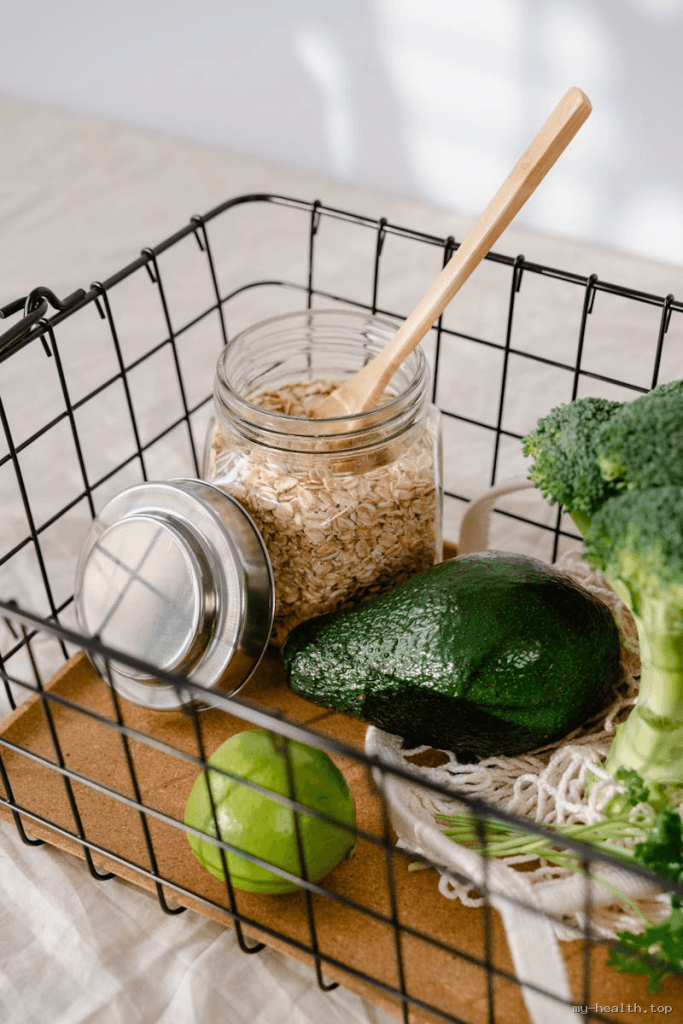This article is for informational purposes only and should not be considered medical advice. Always consult a healthcare professional for dietary recommendations.
Understanding Heart Health
Heart disease remains a leading cause of death globally, but the good news is that many lifestyle changes can significantly reduce your risk. One of the most impactful changes is your diet. By incorporating specific foods into your meals, you can promote heart health and enhance your overall well-being.
1. Fatty Fish
Rich in omega-3 fatty acids, fatty fish like salmon, mackerel, and sardines play a crucial role in heart health. Omega-3s can lower blood pressure, reduce triglycerides, and prevent blood clots. The mechanism behind these benefits lies in omega-3s’ ability to decrease inflammation and stabilize heart rhythms. Studies show that consuming omega-3s can decrease the risk of sudden cardiac death (PubMed). Aim for at least two servings of fatty fish per week to reap these benefits. Consider grilling or baking fish with herbs for added flavor without extra fat.
2. Leafy Greens
Vegetables such as spinach, kale, and Swiss chard are packed with vitamins, minerals, and antioxidants. They are also high in dietary nitrates, which can help lower blood pressure. The mechanism behind this is that dietary nitrates convert to nitric oxide in the body, promoting blood vessel dilation (NHS). Including a variety of leafy greens in your salads or smoothies can boost your heart health. Try mixing different greens for a nutrient-rich salad or sautéing them with garlic as a side dish. Remember, the more colorful your plate, the more nutrients you are likely to consume!
3. Berries
Blueberries, strawberries, and raspberries are not just delicious; they are also rich in antioxidants, particularly flavonoids, which may help lower blood pressure and reduce inflammation. A meta-analysis found that regular berry consumption is associated with a reduced risk of cardiovascular disease (American Heart Association). Snack on berries or add them to your breakfast to enjoy their heart-healthy benefits. You can also blend them into smoothies or sprinkle them over oatmeal for a tasty boost. Incorporating a variety of berries can enhance your antioxidant intake significantly.
4. Whole Grains
Whole grains like oats, quinoa, and brown rice are excellent sources of fiber, which can help lower cholesterol levels and improve heart health. The soluble fiber found in oats, for example, binds to cholesterol in the digestive system, preventing its absorption (CDC). Additionally, whole grains contain essential nutrients such as B vitamins, iron, and magnesium, which are vital for overall health. Replacing refined grains with whole grains in your diet can significantly impact your cardiovascular risk. Start your day with oatmeal topped with fruit or switch to whole grain bread for sandwiches. Consider trying quinoa or farro as a hearty side dish.
5. Nuts and Seeds
Almonds, walnuts, chia seeds, and flaxseeds are loaded with healthy fats, fiber, and protein. Regular consumption of nuts and seeds has been linked to reduced cholesterol levels and improved heart health. They contain plant sterols that help block cholesterol absorption (Mayo Clinic). A small handful a day can be a heart-healthy snack. Consider adding nuts to salads or using nut butter on whole grain toast for a nutritious boost. However, be mindful of portion sizes, as nuts are calorie-dense, and moderation is key.
6. Avocado
This creamy fruit is rich in monounsaturated fats, which can help lower bad cholesterol levels. Avocados also provide potassium, which is essential for maintaining healthy blood pressure (Harvard Health). The healthy fats in avocados can also aid in nutrient absorption from other foods. Adding avocado to your meals can enhance flavor and nutrition. Try smashing avocado on toast, adding it to salads, or blending it into smoothies for a creamy texture without dairy. Remember that while avocados are healthy, they are also high in calories, so enjoy them in moderation.
7. Beans and Legumes
Beans, lentils, and chickpeas are excellent sources of plant-based protein and fiber. They can help lower cholesterol and improve blood sugar levels. The soluble fiber in beans helps reduce cholesterol absorption, while their protein content aids in satiety (Cleveland Clinic). Incorporating legumes into your diet can be as simple as adding them to soups, salads, or as a side dish. You can also try making a bean dip for a healthy snack. Explore different varieties like black beans or lentils to keep meals interesting and nutritious.
8. Dark Chocolate
Good news for chocolate lovers! Dark chocolate, particularly varieties with at least 70% cocoa, contains antioxidants that may improve heart health. Flavonoids in dark chocolate can enhance blood flow and lower blood pressure (UpToDate). Additionally, dark chocolate may improve endothelial function, which is crucial for cardiovascular health. Enjoy it in moderation to satisfy your sweet tooth while benefiting your heart. A small square of dark chocolate can be a delightful end to a meal or a mid-afternoon treat. Pair it with fresh fruit for an extra nutrient boost.
9. Olive Oil
Extra virgin olive oil is a staple of the Mediterranean diet and is rich in monounsaturated fats and antioxidants. Studies have shown that olive oil consumption is associated with a lower risk of heart disease (WHO). The polyphenols in olive oil have anti-inflammatory properties that can further protect your heart. Using olive oil as your primary cooking oil can help reduce inflammation and lower heart disease risk. Drizzle it over salads or use it for sautéing vegetables to enhance both flavor and health benefits. Experiment with different varieties to discover your favorites.
10. Citrus Fruits
Fruits like oranges, grapefruits, and lemons are high in vitamin C and other antioxidants. They can help lower blood pressure and cholesterol levels. The potassium in citrus fruits can also help manage blood pressure (NHS). Start your day with a citrus fruit or add them to your salads for a refreshing twist. Consider making a citrus salad with mixed greens for a light, nutritious dish. The bright flavors can also enhance your meals and encourage you to eat more fruits and vegetables.
Myth vs. Fact
Myth: All fats are bad for heart health.
Fact: Healthy fats, such as those found in avocados, nuts, and olive oil, are beneficial for heart health. They can help improve cholesterol levels and reduce inflammation.
Myth: You can’t eat carbohydrates if you want to be heart-healthy.
Fact: Whole grains and legumes are healthy carbohydrate sources that can support heart health. They provide essential nutrients and fiber.
Myth: Eating heart-healthy foods is too expensive.
Fact: While some health foods can be pricey, many affordable options exist, such as beans, lentils, and seasonal fruits and vegetables.
Myth: You need to eliminate all sugar from your diet.
Fact: While it’s important to limit added sugars, naturally occurring sugars in fruits can be part of a heart-healthy diet.
Patient Vignette
Meet Sarah, a 52-year-old woman who was recently diagnosed with high blood pressure. After consulting with her doctor, she decided to revamp her diet. By incorporating more leafy greens, fatty fish, and whole grains into her meals, Sarah noticed a significant drop in her blood pressure within a few months. She now feels more energetic and is committed to maintaining her heart-healthy lifestyle. Sarah also shares her meals with her family, making it a collective effort to eat healthier. Her journey highlights the importance of community support and how small changes can lead to significant health improvements.
Frequently Asked Questions
What are the best foods for heart health?
Foods rich in omega-3 fatty acids, fiber, and antioxidants, such as fatty fish, whole grains, and berries, are among the best for heart health.
How often should I eat heart-healthy foods?
Incorporating heart-healthy foods into your daily diet is ideal. Aim for a variety of these foods at each meal.
Can I still eat sweets if I want to be heart-healthy?
Yes, but moderation is key. Dark chocolate can be a heart-healthy option when consumed in small amounts.
Are there any foods I should avoid for heart health?
Limit foods high in saturated fats, trans fats, and added sugars, such as processed snacks and sugary beverages.
Is a vegetarian diet good for heart health?
A well-planned vegetarian diet can be very heart-healthy, especially if it includes a variety of fruits, vegetables, whole grains, and healthy fats.
How can I make my meals more heart-healthy?
Incorporate more fruits, vegetables, whole grains, and healthy fats while reducing sodium and processed foods in your meals.
What cooking methods are best for heart health?
Opt for cooking methods like grilling, baking, steaming, or sautéing with healthy oils to maintain the nutritional integrity of your food while minimizing unhealthy fats.
Are there any special considerations for people with existing heart conditions?
Individuals with heart conditions should work closely with their healthcare provider or a registered dietitian to tailor their diet to their specific needs. This may include monitoring sodium intake and ensuring adequate nutrient balance.
Key Takeaways
- Incorporate fatty fish into your diet at least twice a week.
- Choose whole grains over refined grains for better heart health.
- Snack on nuts and seeds for healthy fats and fiber.
- Add leafy greens and berries to your meals for added nutrients.
- Use olive oil as your primary cooking fat.
References
- PubMed: Dietary Fat and Heart Disease
- WHO: Healthy Diet
- CDC: Heart Disease Facts
- NHS: Heart-Healthy Eating
- UpToDate: Cardiovascular Disease Prevention
- American Heart Association: Healthy Eating for Heart Health
- Harvard Health: Foods for Heart Health
- Mayo Clinic: Heart-Healthy Diet
- Cleveland Clinic: Nutrition and Heart Health








Post a comment